What I learned in Paris
And how this first European trip set the standard for the REST to come.
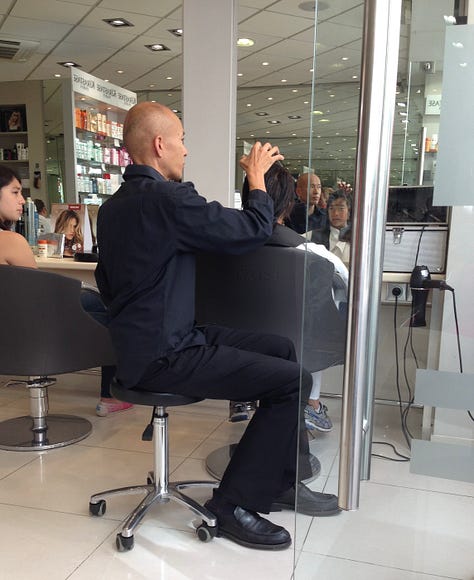
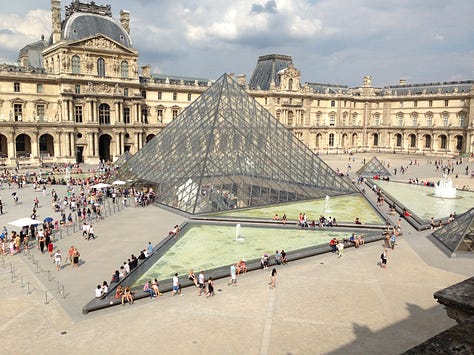
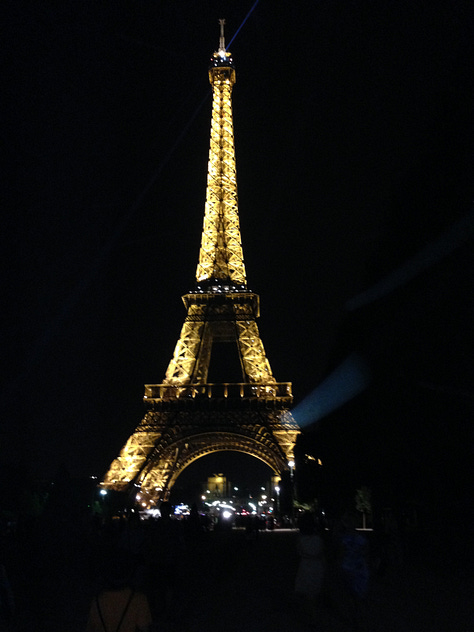
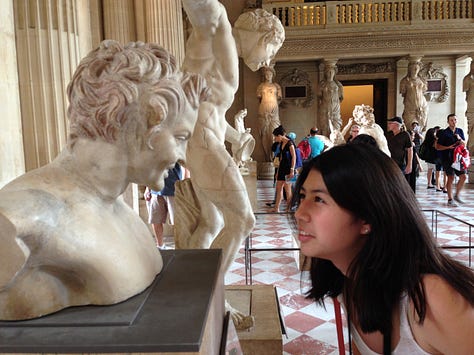
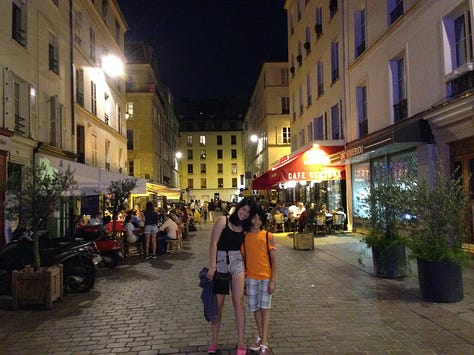
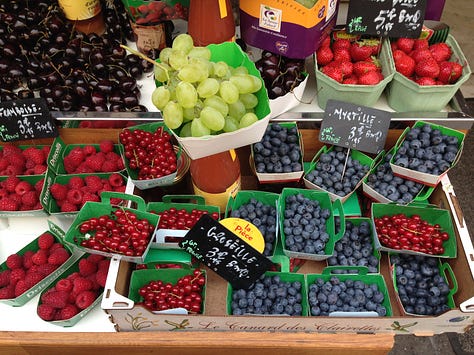
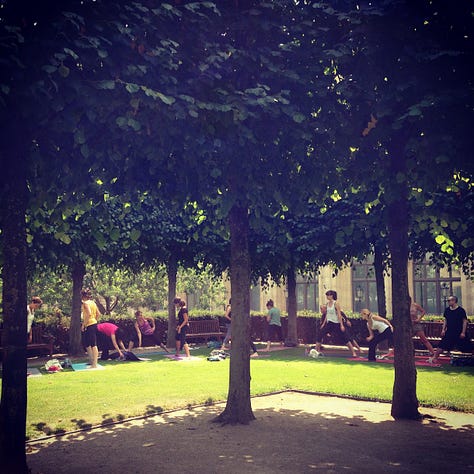
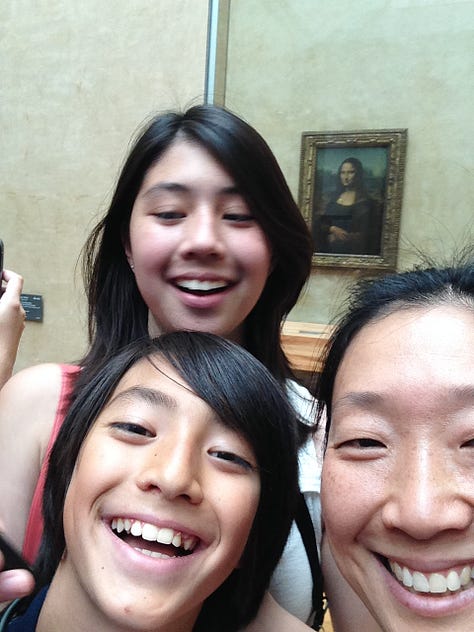
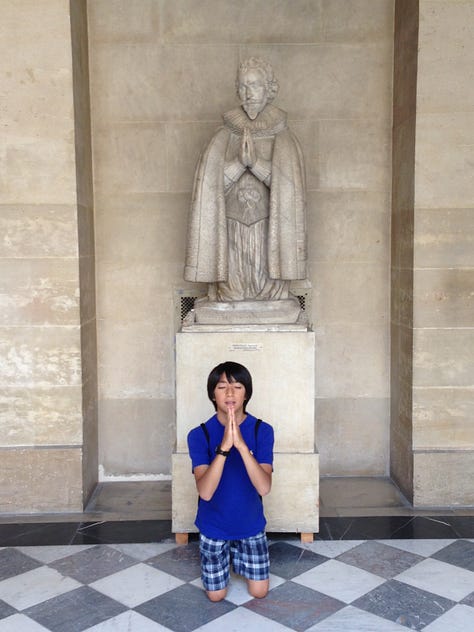
My first ever European trip was to Paris (and London) with my two kids in 2014.
We got to our hotel before our room was ready, so the concierge suggested we visit the cafe down the street while they prepped our room.
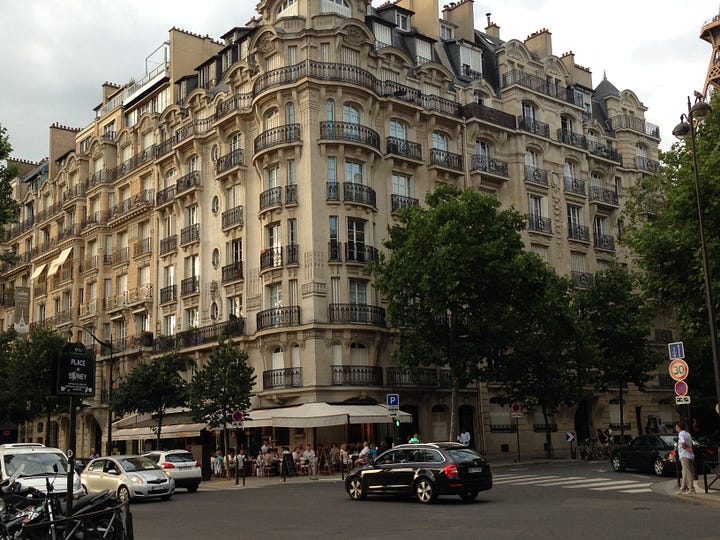
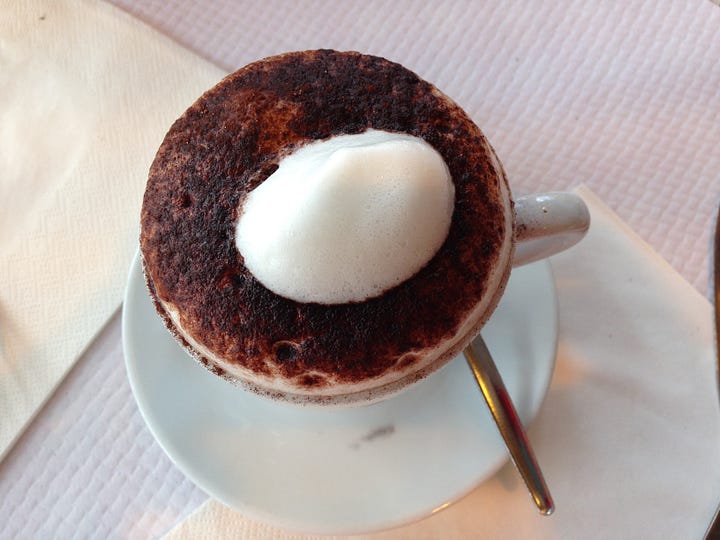
As soon as we sat down, I experienced something unexpected and much more significant than Paris’ most notable monuments and museums (of which they have plenty):
Complete relaxation.
It was in the air… throughout the city.
People were relaxed, and so was I, even more so than at home. Usually, city folk have to go to the countryside to feel this sort of thing. I felt it first in Paris.
The couple who sat at the table next to us, I found out, lived down the street. He had a newspaper spread out over the table, and she was engrossed in a book.
They looked up at us, leaned slightly forward, and conversation ensued.
Not once did they ask me what I did for work. Not once did I ask them… for no other reason than everything else seemed much more interesting.
I learned what they were reading about and what curiosities expounded from it, where they came from, where they like to go and why, and what they valued based on the questions they asked.
We told them that we were going to visit Oxford on this trip. What mattered less to them was what my daughter wanted to study or become when she grew up, and more what she looked forward to seeing and tasting while abroad. The Mona Lisa, of course - my daughter loves art museums. My son wanted to find a magic set (we found it in London). And both my kids wanted to take short clips of themselves juggling everywhere.
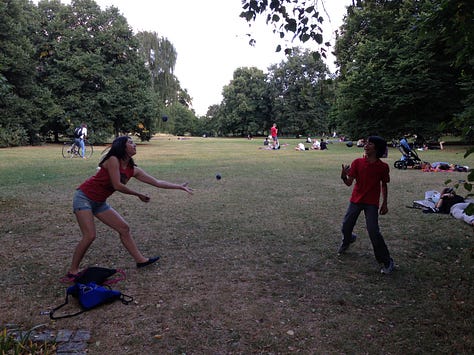
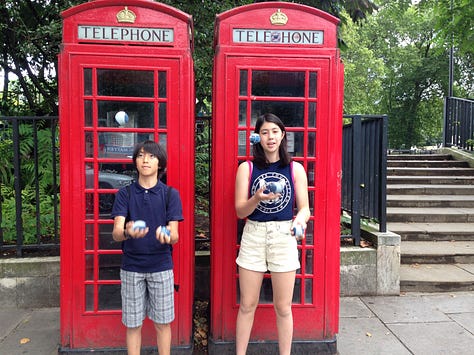
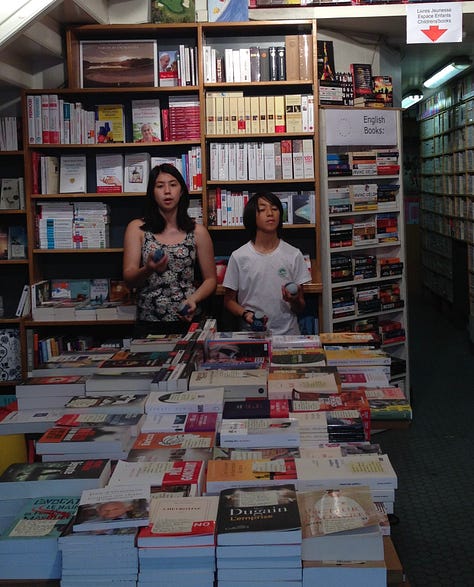
Instead of sharing what we did for a work (or in the case of children, what they wanted to be when they grew up), it was nice to share what we all did for leisure.
Getting the check from the waiter took time.
Once I got it, it seemed to take even longer for him to come back to process my card. They were in no hurry for us to go.
This happened everywhere, and I tried different tactics to move along the leaving process. It didn’t matter, they never took the cue.
I initially thought why are they so slow? Are they that busy?
Then I realized it was me. I was being an American, in a rush to move on to the next thing. This was confirmed over and over again, in Portugal, Italy, Denmark, Argentina, Mexico, Colombia…
What’s funny is, at home, I’m considered the slow one, insisting on taking her time before getting up after a meal.
Walking through the parks, I noticed adult friends and couples on blankets or benches, enjoying picnics, chatting, or being silent together. Some couples were wrapped around each other apparently taking naps.
In the parks back at home in Chicago, you might see a dog or two with their owners, otherwise they’re empty. Parents can be found with their children on playgrounds or on bikes. All good, but mostly functional: they’re checking exercise and fresh air off their list, or they’re there to tire their child or dog out.
With my first adult experience abroad, I began to understand how much of our identities as Americans were attached to work… and consequently, how wound up we are.
It’s one thing to learn to slow down and be through yoga and spiritual practice. It’s another thing to experience an entire culture living it, and to feel that frequency in the air. It makes slowing down and enjoying life more natural and not such a radical thing to have to explain and learn.
I returned home looking at life differently. This is what they must mean when they say travel expands you.
And yes, the city itself is beautiful - the monuments, museums, and the food in Paris were amazing.
Speaking of food, I grabbed a to-go packet of Heinz ketchup from a Paris cafe to bring home to compare it against our Heinz…
Check this out -
I learned that they have different laws in other countries about what food ingredients are acceptable. The corporations must use cleaner ingredients to get their products into certain countries outside the U.S. Which factors into why the same looking foods in Europe don’t cause obesity and other chronic health issues like they do here in the States.
I still love this country with all of its issues. And to say that France, or any other country, doesn’t have their own problems would be untrue.
In fact, my next visit back to Paris was in November-December of 2018, this time with Larry.
We found ourselves smack dab in the middle of an economic protest. Our early morning walk ended in us running in the opposite direction of the protesters. They were running from the tear gas being thrown at them, while we were running towards its source… to get back to our hotel. None of this was happening when we started our walk.
We had to show our room key to be allowed back into the hotel. The doors to every establishment in that vicinity were locked; many were boarded to protect their windows.
It was strange to be there watching this happen with only glass separating us from the protest.
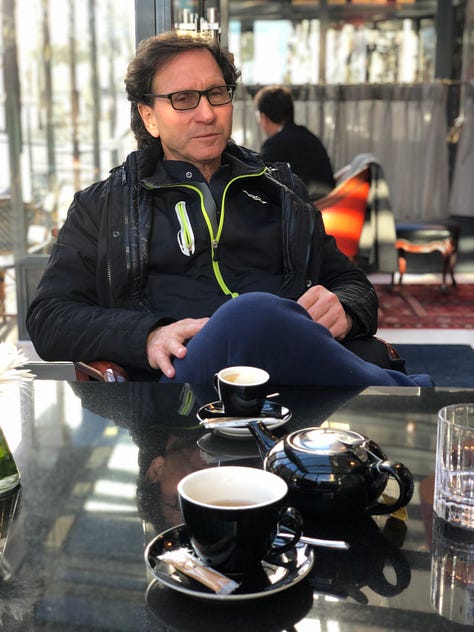
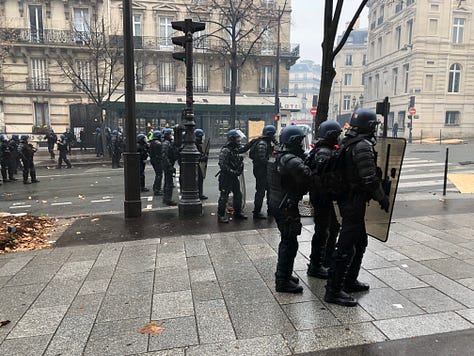
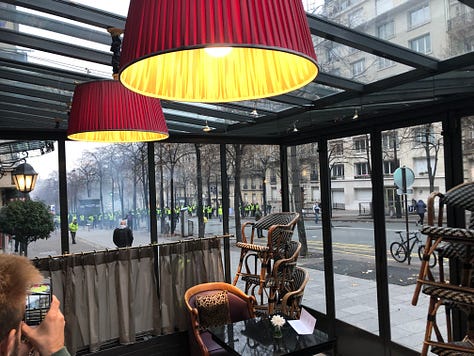
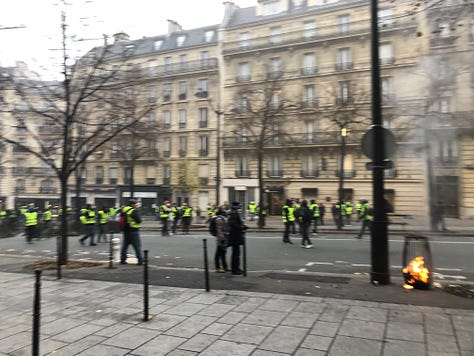
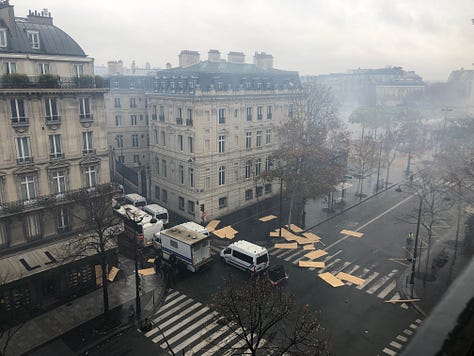
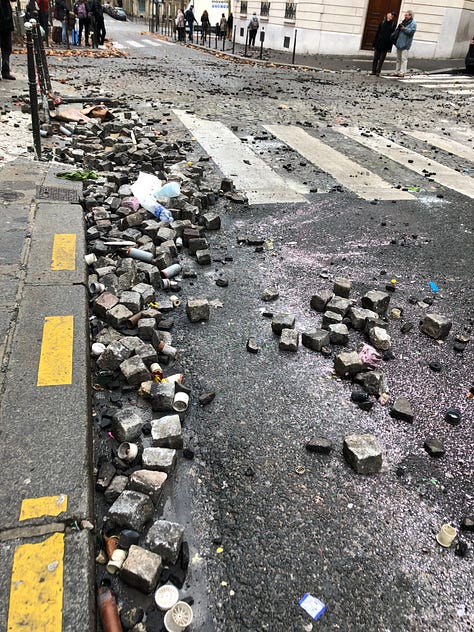
The frustrations of the protesters stemmed from the threat of losing their ability to live their core value, which is to work to live.
Whereas Americans live to work.
We (Americans) want to disagree with this distinction because we too, at least intellectually, want to stop making work our life.
But what reflects this difference lies in our (perhaps subconscious) persistence in attaching our identities, our joy, and sense of importance to our work, which - and we can’t seem to help it - prompts one of the first questions we often ask the people we meet:
What do you do?
Or when someone is doing what is perceived as “not a real job”:
What do you plan to do next?
Or, this, which is quite the ax:
What’s your fall back plan?
We feel the need to explain ourselves when we don’t feel enough about where we are in our work life. And we’re compelled to ask full-time moms what they did before they quit their job.
As if what we are doing right now while not on the clock isn’t sufficient enough to get to know each other.
As if we will know someone better by their work ambitions.
As if asking what book they’re reading and what they love about it won’t tell us more about them than where they are in their careers.
As if being curious together about the mysteries of life, or sharing favorite recipes or places to visit, isn’t much, much more interesting than digging into career successes and the problems of the world.
I don’t know how France has evolved since my last visit. What I learned from them, however, will stay with me forever: that living as a core value can exists not only as individuals but as a country. And that…
We are already more than we think we are. We have already arrived.
So unwind and relax. Go to a cafe. Enjoy the park for no reason. Go simply to hang out without saying we have 15 minutes to do this, then we gotta….
Challenge yourself to get to know others without knowing what they do for a living and how they can afford to do what they do.
Connect human to human rather than work to work, money to money. This is making us anxious and judgy and focused on the wrong things - it injects into the air the “get busy” vibe, shackling us to our to-do list rather than our life list.
Since this first trip to Paris, I mostly measure my travel experiences, not by the town’s famous monuments, but by how they design their neighborhoods, how they eat, and how the adults hang out.
Love, Savitree




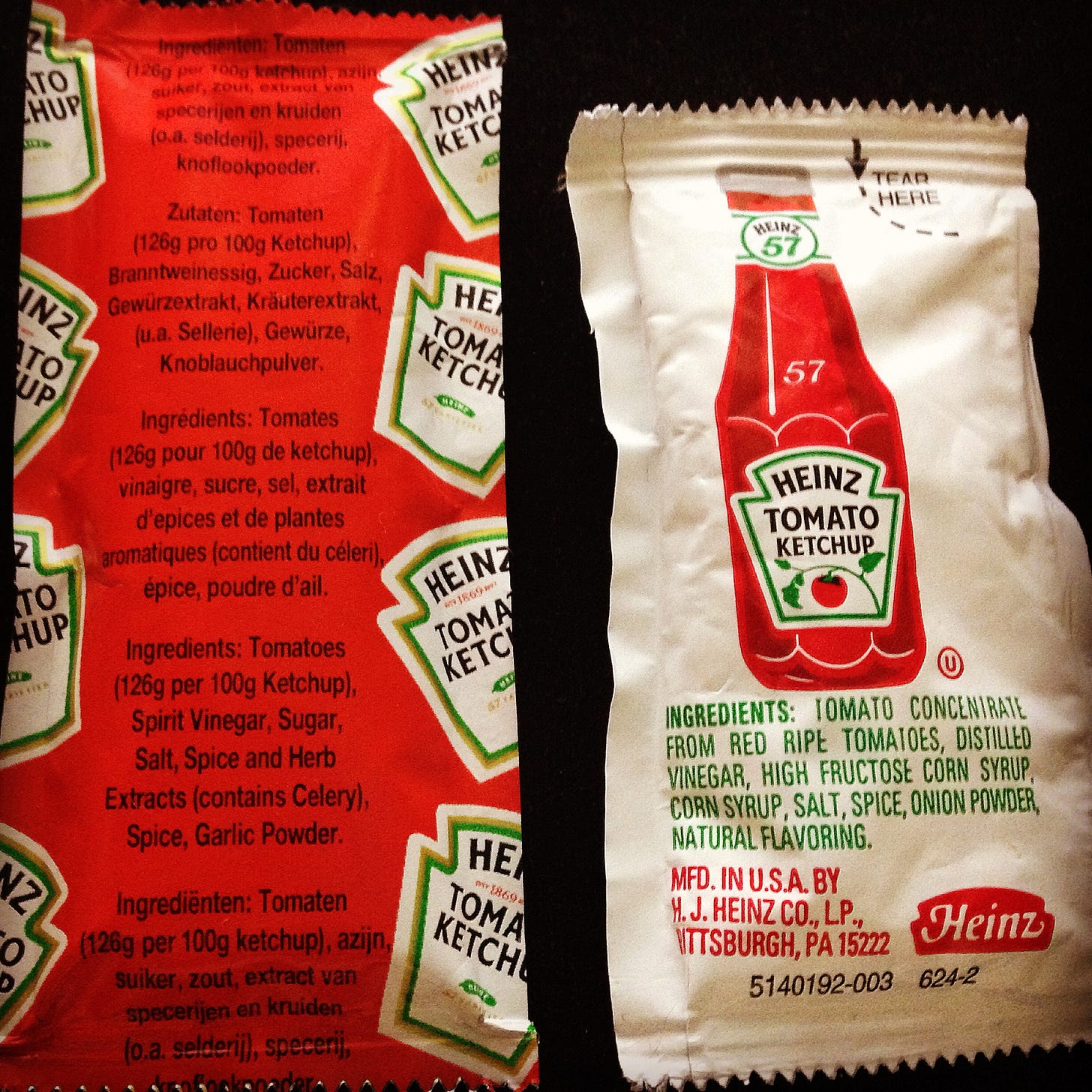
I can relate to this so much Savitree! While an overused phrase, 'la joie de vivre', is truly at play here in France. There is this connection, be it with people you buy your food from and a loyalty to keep these people in business. It's going to the park and and seeing people literally walking around reading a book as they walk! Of course, reading books at cafés too. When I go back home to Australia to visit, I am so aware of where conversations centre around: jobs, real estate and dieting.
Excellent writing, my friend! ♥